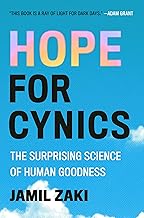Cultivating Inclusive Classrooms Begins with You and Me


DEI Begins with You
Many in the educational world are already familiar with Culturally Responsive and Sustaining Pedagogy (CRSP). We intentionally build inclusive classrooms by employing CRSP to:
- meet students where they are
- better serve their needs
- expand students’ worldviews
- encourage deeper discourse
- provide more meaningful materials
- create a more affirming environment that nurtures students’ identity development and sense of belonging
But, according to Symone James Abiola in Anti-Racist Teaching, before diving in (or continuing to tread the waters), we all—educators, administration, parents and community members—must take the plunge ourselves.

Basically, how can you teach something you haven’t really figured out for yourself?
If you haven't, here are two steps to get started:
Step 1: Personally reflect on your beliefs and practices.
It might feel like a personal suggestion, and it’s meant to; it’s all about you. As educators, when the job becomes challenging, we might attempt to compartmentalize and keep work at work and our personal lives personal.
But let’s be real: while this can be a healthy practice in some situations, we still bring our whole selves to work just as students do. If we want to be anti-racist educators, we must get personal and look inward—not only at what we do in the classroom but at the beliefs and practices we bring with us to our jobs. We must consider how they influence the way we teach and our relationships with students, staff, and families.
Go old-school and get a piece of paper to jot down your thoughts about the following questions. They will serve as a start to deeper reflections that will guide you later.
- How have you pursued personal growth in the last five years? Think broadly, not only as an educator but also as a human. Have you intentionally sought to uncover and address your own biases?
- What personal and educational beliefs or core values do you hold dear, and what actions have you taken in your classroom or school because of them? How do they show up in the activities and with the people you engage with outside of school?
- What is your reaction when faced with uncomfortable or hard conversations?
- What constitutes uncomfortable or hard topics for you to discuss?
Step 2: Begin with yourself.
Our identities and experiences shape our beliefs, values, and cultural perceptions. These, in turn, impact our pedagogy and relationships with students, especially those from historically marginalized populations.
If you had to describe your identities, how would you do so? Which identities do you think most about?
We all benefit when we understand how racism and other forms of prejudice and discrimination have shaped the larger political context in which we live and educate. We must understand the role of our identities within society and the unearned privilege or disadvantage attached to these identities based on race, class, gender, and other identifiers.
If you have yet to take time to reflect on your identities within these contexts, here are a few suggestions to begin understanding your own positionality.
- First, search for a Social and Personal Identity Wheel online. One option is the Social Identity Wheel adapted from “Voices of Discovery,” Intergroup Relations Center, Arizona State University. However, many other options are also appropriate.
- Next, see where the identities you possess fall on the Wheel of Power and Privilege originally created by the Canadian Council for Refugees. Notable adapted versions of this wheel have been created by Sylvia Duckworth and Tessa Watkins, but again, many options are available.
- When you complete this activity, reflect on whether you are closer to the center for some identities and to the outer margins for others.
- Seek resources to learn how privilege serves certain identities while others are met with barriers, and what those barriers may be. What about your students? Having a critical consciousness of positionality and privilege will help you recognize and critique the effect of privilege within our society and understand how systems inequitably and unjustly serve certain populations.
- Consider how this is evident within schools and even between school districts. An awareness of privilege prompts us to act when we recognize our own harmful practices and roles within problematic systems. You can find self-assessment resources in the book Using Equity Audits in the Classroom to Reach and Teach All Students by Kathryn McKenzie and Linda Skrla.
A Final Word:
By following our own pathways to cultivate an inclusive classroom, we create environments that deepen our students’ sense of empathy and strengthen their sense of self … which are then woven into the fabric of our personal teaching and learning instead of being outcomes that we just hope will happen.
We wish you luck as you continue along your journey.
Part of this text is taken from Anti-Racist Teaching by Symone James Abiola
Read More with Anti-Racist Teaching

Jason Reynolds

Most of the time, our Teacher Tool Chest features a really cool website, interesting interview, something new on the school scene or an impactful resource. This week, it’s a combination of all those wrapped up into an amazing person: young adult and middle grade author Jason Reynolds.
In the way of credentials, he’s won:
- Caldecott Medal in both 2023 and 2024
- John Newbery Medal
- Edgar Award
- NAACP Image Award
- Audie Award
- Carnegie Medal for Writing
- MacArthur Fellowship
- Goodreads Choice Award
And we won’t even begin to list all his books and collections of poetry.
But you don’t need us to tell you about Jason: watch his CBS interview with Jane Pauley and see for yourself what he’s all about:
On his Amazon Author Page, Jason explains:
“… there are a lot — A LOT — of people, young, old, and in-between, who hate reading. He knows that many of these book haters are boys. He knows that many of these book-hating boys, don't actually hate books, they hate boredom … know that Jason totally feels you. He REALLY does. Because even though he's a writer, he hates reading boring books too.
So here's what he plans to do: NOT WRITE BORING BOOKS.”
‘Nuff said, right?
His books and poetry are moving and real and connect with every kid, no matter race or home life. One of our favorites is Stamped: Racism, Antiracism, and You. It’s a YA version of the award-winning Stamped from the Beginning by Ibram X. Kendi.
It’s a book we ALL should read, and it’s a book you can read with your students. Better yet, listen to the audio. Reynolds is the narrator and brings the book to life, as though he were sitting right there with you in class. “Stop! Record scratch …” is just one of his many lines that make it real.
Even better, Hachette Book Group offers a free educator’s guide.
Better still, there’s a younger kids’ version, too, adapted by Sonja Cherry Paul: Stamped (For Kids): Racism, Antiracism, and You.
More Good Stuff

Here are more resources to dive into the world of Jason Reynolds:
- "My Mother Made Me” 4-episode series on the Radiotopia Presents podcast
- BUILD Series conversation about Stamped
- School Library Journal’s keynote conversation with Jason Reynolds and Ibram Kendi
- And his website, Jason Writes Books
Hope Over Caution
"Jamil Zaki is the director of the Stanford Social Neuroscience Lab and author of the new book Hope for Cynics: The Surprising Science of Human Goodness.
In an interview with MindShift, Zaki said that when adults 'try to keep our kids safe by making them feel unsafe,' they fuel a cynicism that can have unintended consequences for children’s mental and emotional well-being.
'If we focus kids on the negative – on the worst parts of life and the worst parts of humanity – we’re going to end up shrinking their world, making it harder for them to trust, and making it harder for them to explore, take risks, and form relationships.' "
Quoted from "The Benefits of Raising Hopeful Kids in Cynical Times" by Deborah Farmer Kris on the MindShift website.
Read More
- Culturally Responsive Teaching and the Brain by Zaretta Hammond
- How to Be an Antiracist by Ibram X. Kendi
- Stamped from the Beginning: The Definitive History of Racist Ideas in America by Ibram X. Kendi
Resources
- Hope for Cynics cover image from Grand Central Publishing
- Jason Reynolds photo by Shawn Miller from Wikipedia
- Main post image by Ribhav Agrawal from Pixabay
- “My Mother Made Me” image from Radiotopia Presents
- Stamped and Stamped (for Kids) cover images from Little, Brown Books for Young Readers
Share the Love
Got friends who can benefit from these Hacks?
Forward this to them and remind them to sign up here.
Level up with more from Educator's Edge










Responses